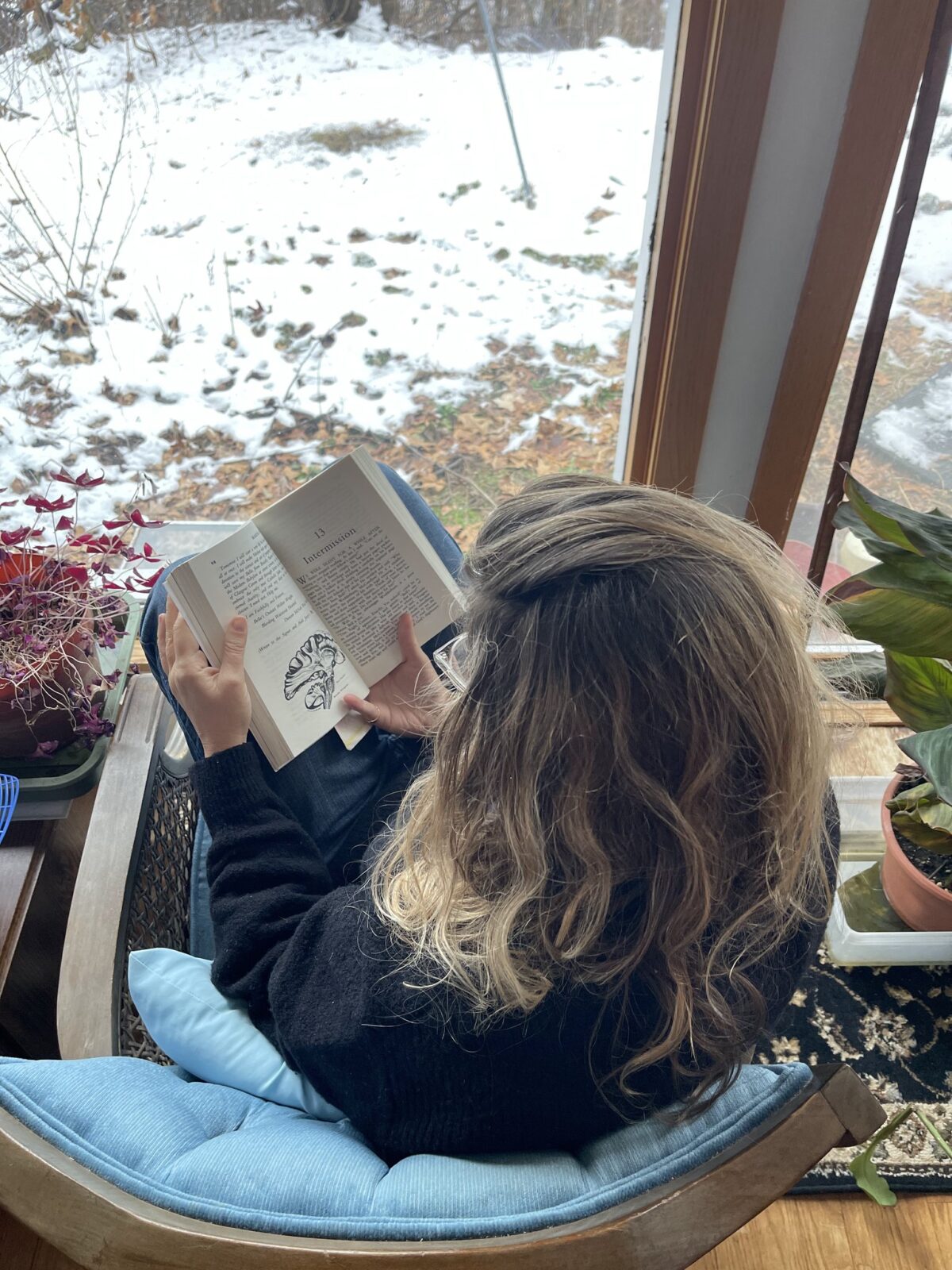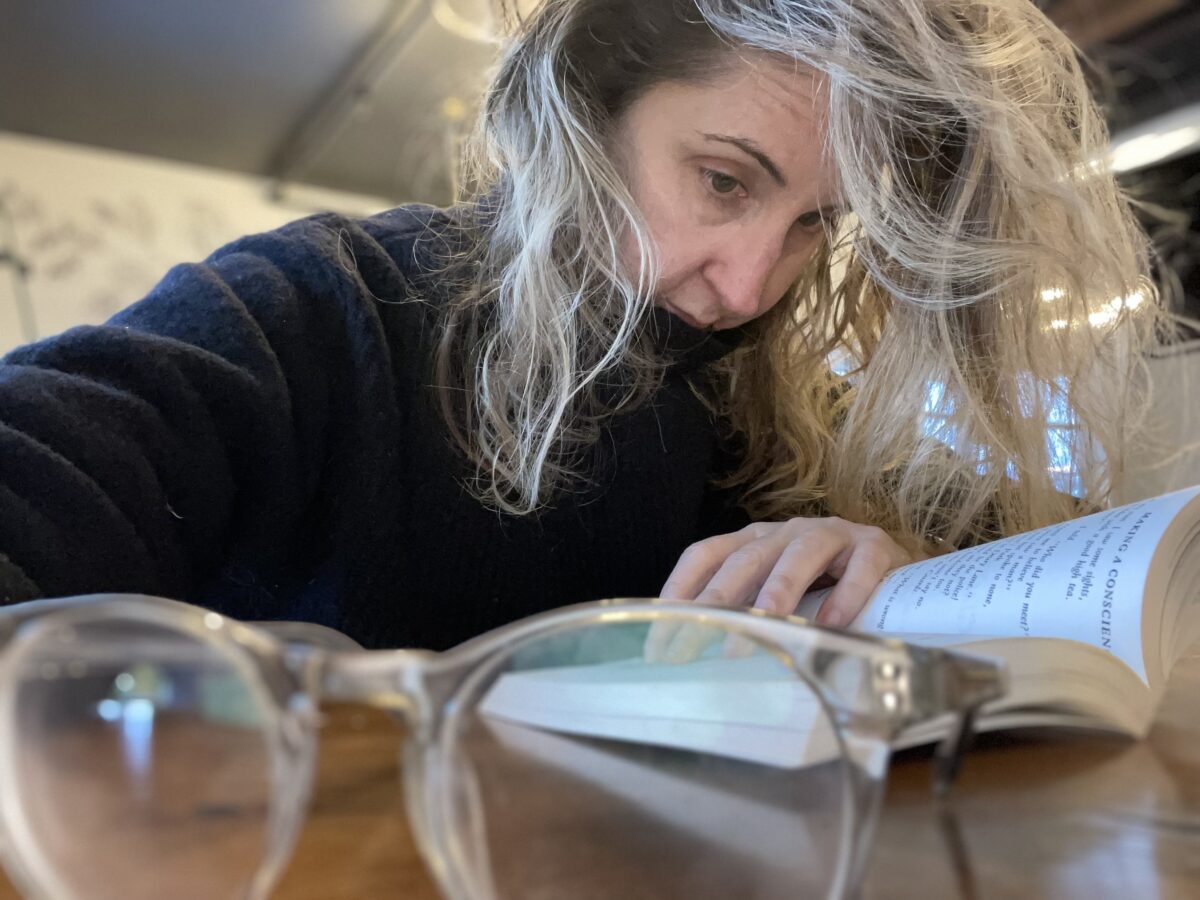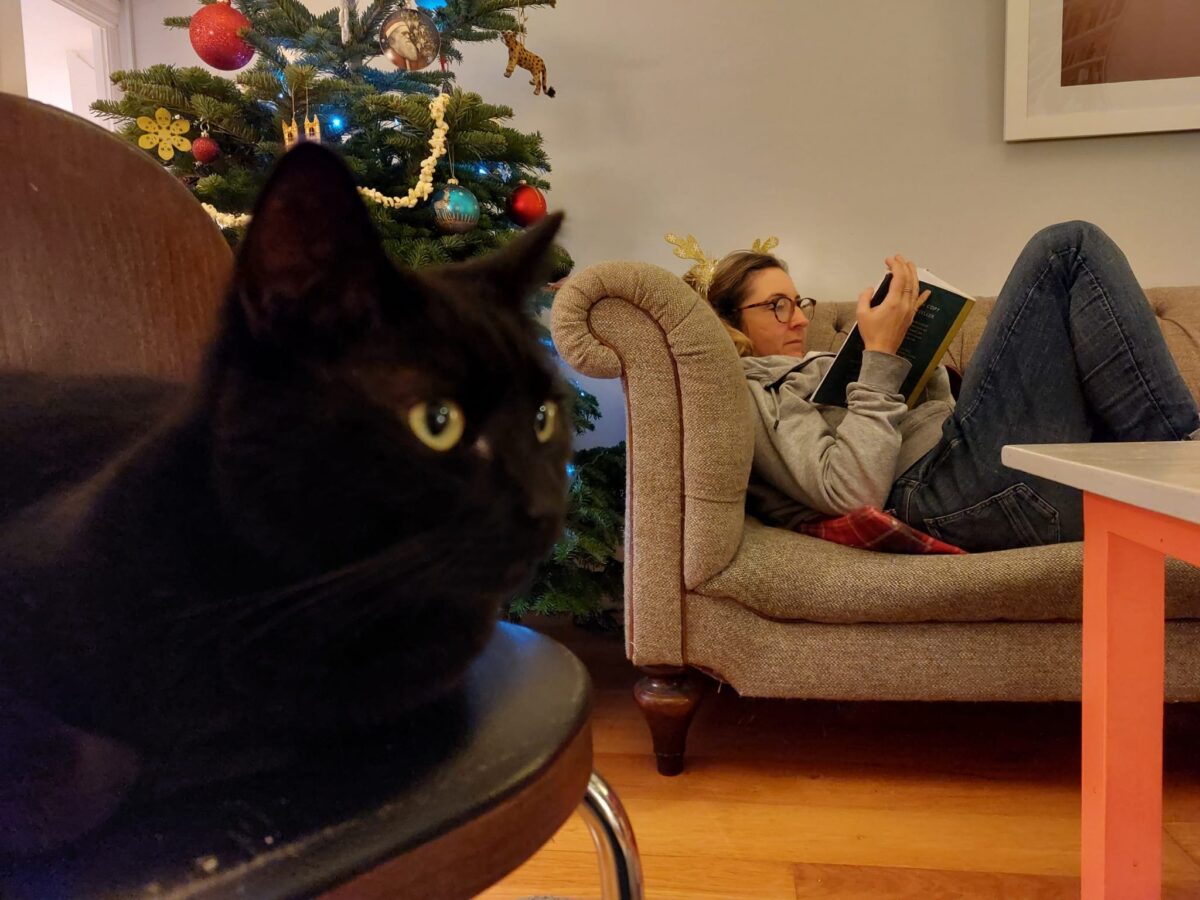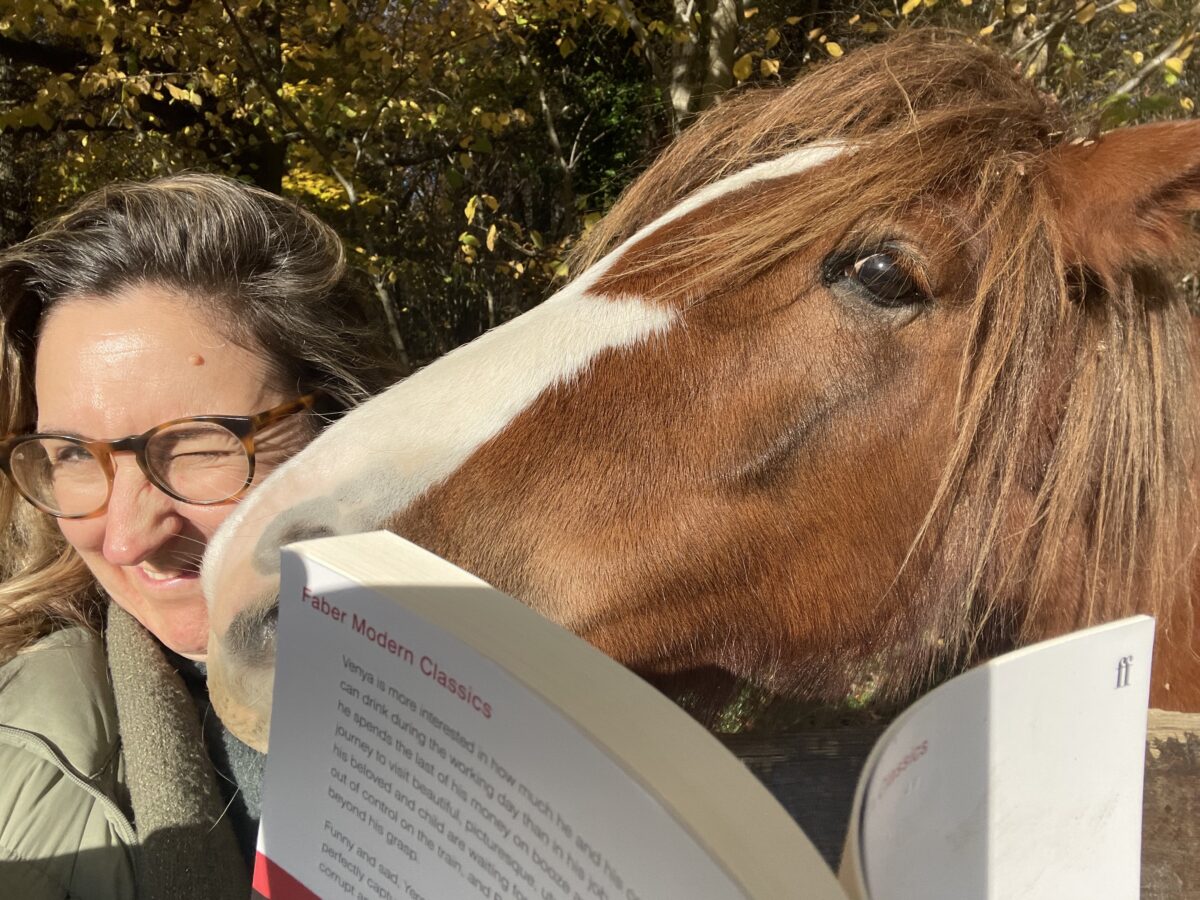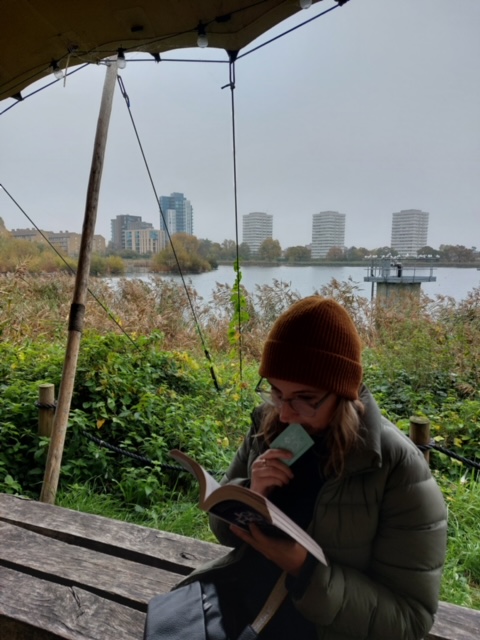There were lots of bits of this book that I liked. Try this:
One of the cats levitated to the porch railing, where it lifted its leg, long and straight as a geometry compass, and made a noisy, jubilant feast of its asshole.
Or this, in a mall food court:
They saw men’s pale legs. Frail as roots. Buried all winter. Exposed, now, too soon. Cold. Tortured. Standing in line for fast food. Bringing their trays to small tables, tucking in the attached chairs, alone, knees pointing in opposite directions. Too much thing. Unsettling tendons. Dry knees. Leg hair. White socks. Sneakers.
But in the end I could not finish it. I just got too irritated. It was about a rich woman who never organized herself to have a real job, and now that she is married and a full-time mom, is anxious about unlikely scenarios in which her husband can no longer earn money. I mean I sort of feel for her but on the other hand she is so checked out she doesn’t even know whether their mortgage is expensive for them or not. I mean?!? It just seemed super-whiny. Suffragettes did not go to jail for this I can tell you that much.


